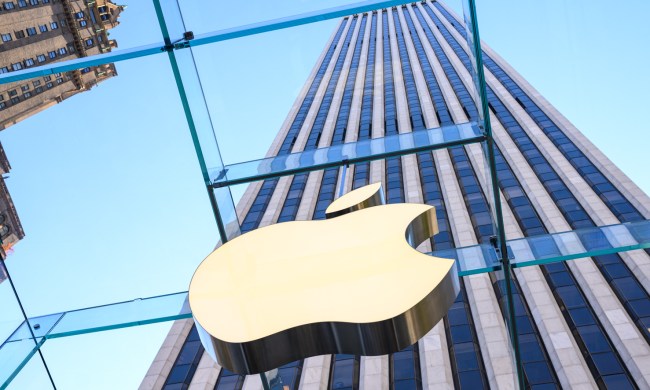Mercedes-Benz might be known for luxury cars, but it also makes vans, and it’s finally bringing an electric van to the United States.
Scheduled to start production this summer, the 2024 Mercedes-Benz eSprinter is an all-electric version of the Sprinter full-size cargo van that’s already a favorite of delivery services like FedEx and Amazon, as well as camper van converters. While the automaker has been selling electric vans in Europe since 2010, the new eSprinter is the first one aimed at the U.S. market.

This new model is actually the second-generation eSprinter, however. Mercedes launched the previous version as part of a redesign of the Sprinter for the 2019 model year. While that redesign also saw the launch of U.S. production for internal-combustion Sprinter models, Mercedes opted not to bring the first-generation eSprinter here. Instead, we get this upgraded version, which shares a body shell with the old eSprinter (as well as gasoline and diesel Sprinter models), but gets a new van-specific powertrain, with larger battery packs and new motor-axle assemblies.
Mercedes will offer multiple configurations of body style and pack size in other markets, but for now, the U.S.-spec eSprinter is offered exclusively as a high-roof, long-wheelbase cargo van with a 113-kilowatt-hour battery pack. The rear-wheel drive van is powered by a single electric motor with 134 horsepower or 201 hp outputs, both with 295 pound-feet of torque. Full range figures aren’t available yet, but Mercedes estimates 248.5 miles on the more lenient European Worldwide harmonized Light vehicles Test Procedure (WLTP) testing cycle.
The battery cells use lithium iron phosphate (LFP) chemistry similar to what is used in some entry-level Tesla models. It’s a somewhat cheaper alternative to other lithium-ion chemistries and, Mercedes notes, eliminates the use of cobalt and nickel, costly minerals that have generated concerns over pollution and human rights abuses related to their mining. A 115-kilowatt DC fast charger can take the pack from 10% to 80% in 42 minutes, according to Mercedes. A slower 9.6-kW AC charger is included as well.
The eSprinter also gets some tech features from Mercedes’ passenger cars, including the MBUX (Mercedes-Benz User Experience) infotainment system, with a 10.25-inch touchscreen and the same natural language voice recognition system used in other Mercedes models.
Mercedes plans to launch the new eSprinter in the U.S. and Canada first, with the summer delivery target likely making the van a 2024 model. A European launch will follow, and Mercedes also plans to build eSprinters at the same Charleston, South Carolina, factory that builds internal-combustion Sprinters for the U.S. market at some point in the future. For now, the eSprinter will compete against the Ford E-Transit — an electric version of the Blue Oval’s bestselling van — as well as dedicated EV designs from General Motors’ new BrightDrop division and Rivian.
Mercedes will also ditch its internal-combustion van underpinnings and move to a dedicated EV platform called Van.EA in 2025. Every Mercedes van model launched after that point will be electric, the automaker claims. In the meantime, the eSprinter will help Mercedes get more electric vans on the road — and reduce emissions today, rather than tomorrow.


